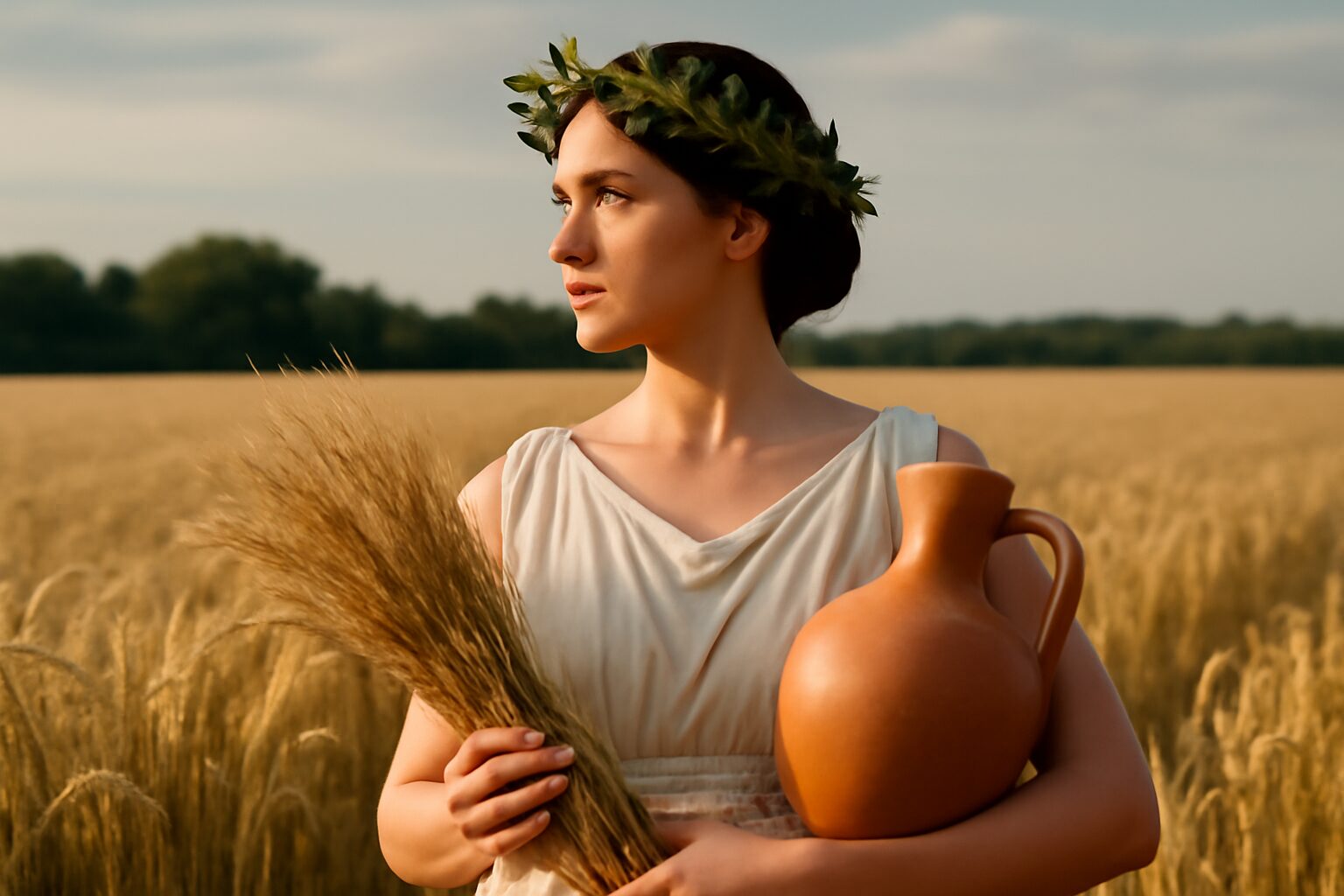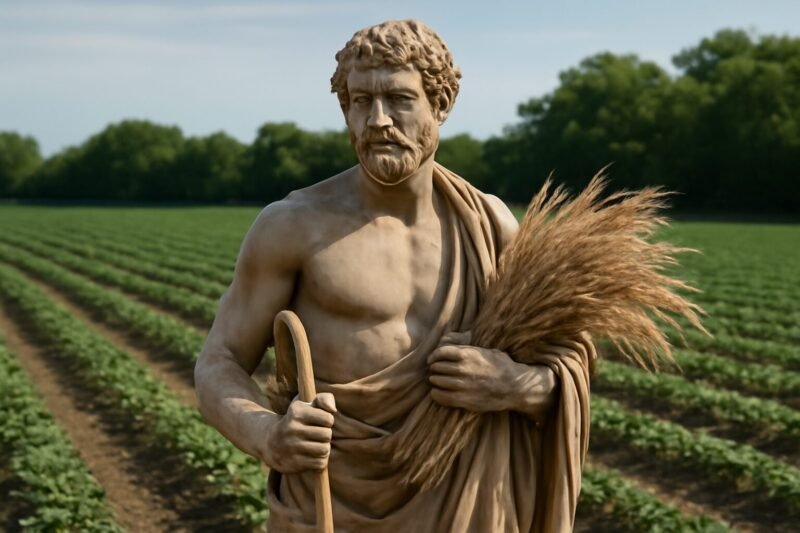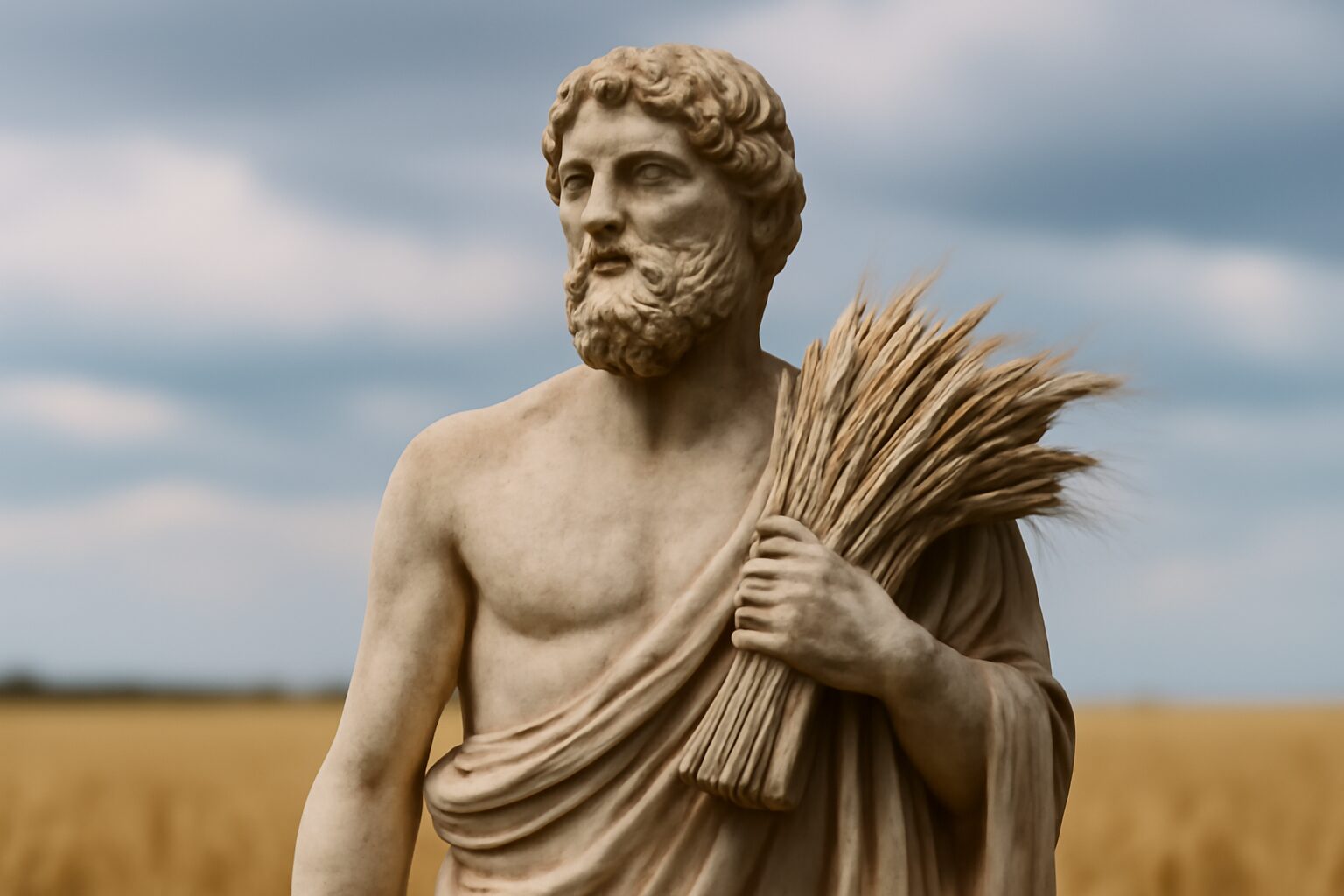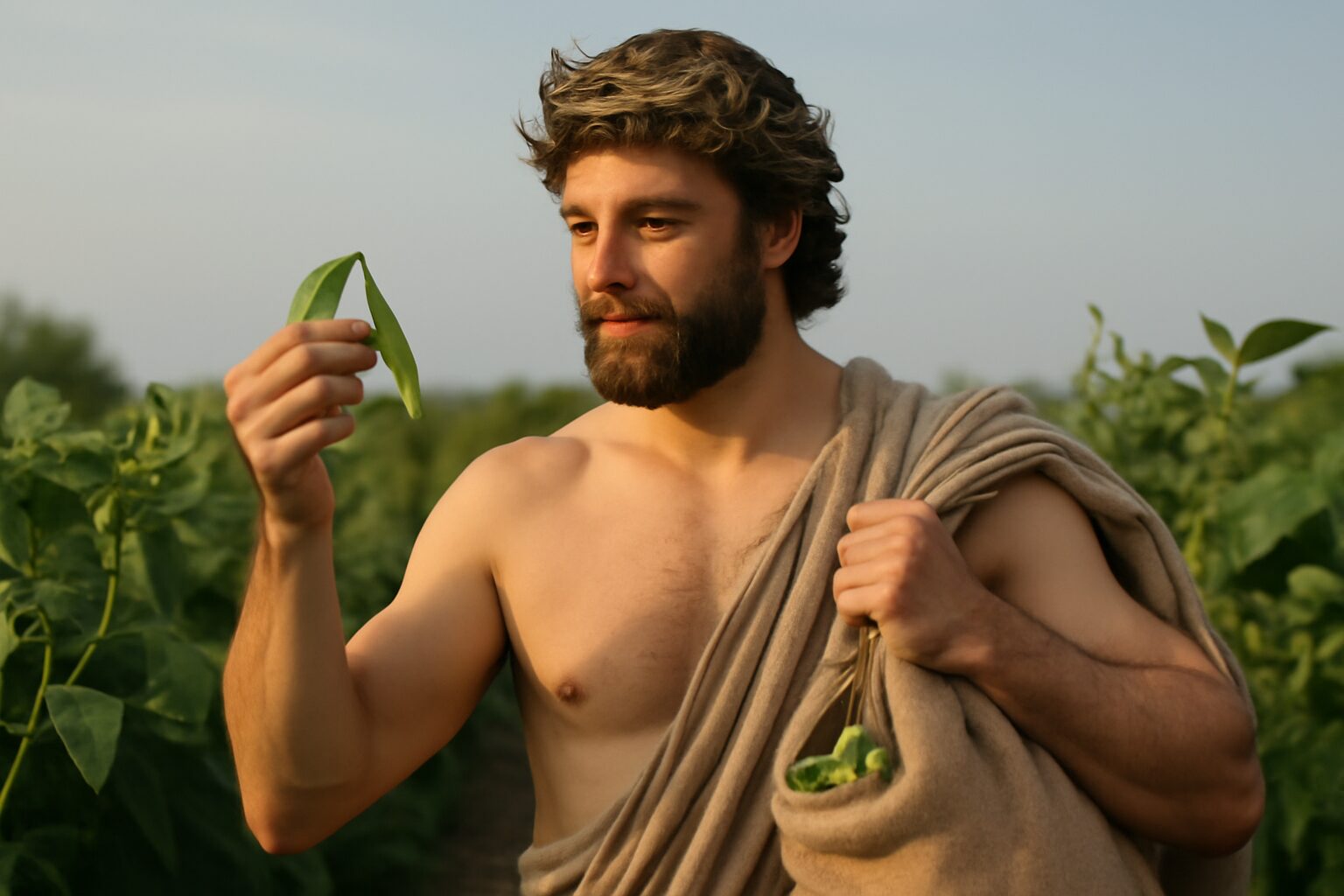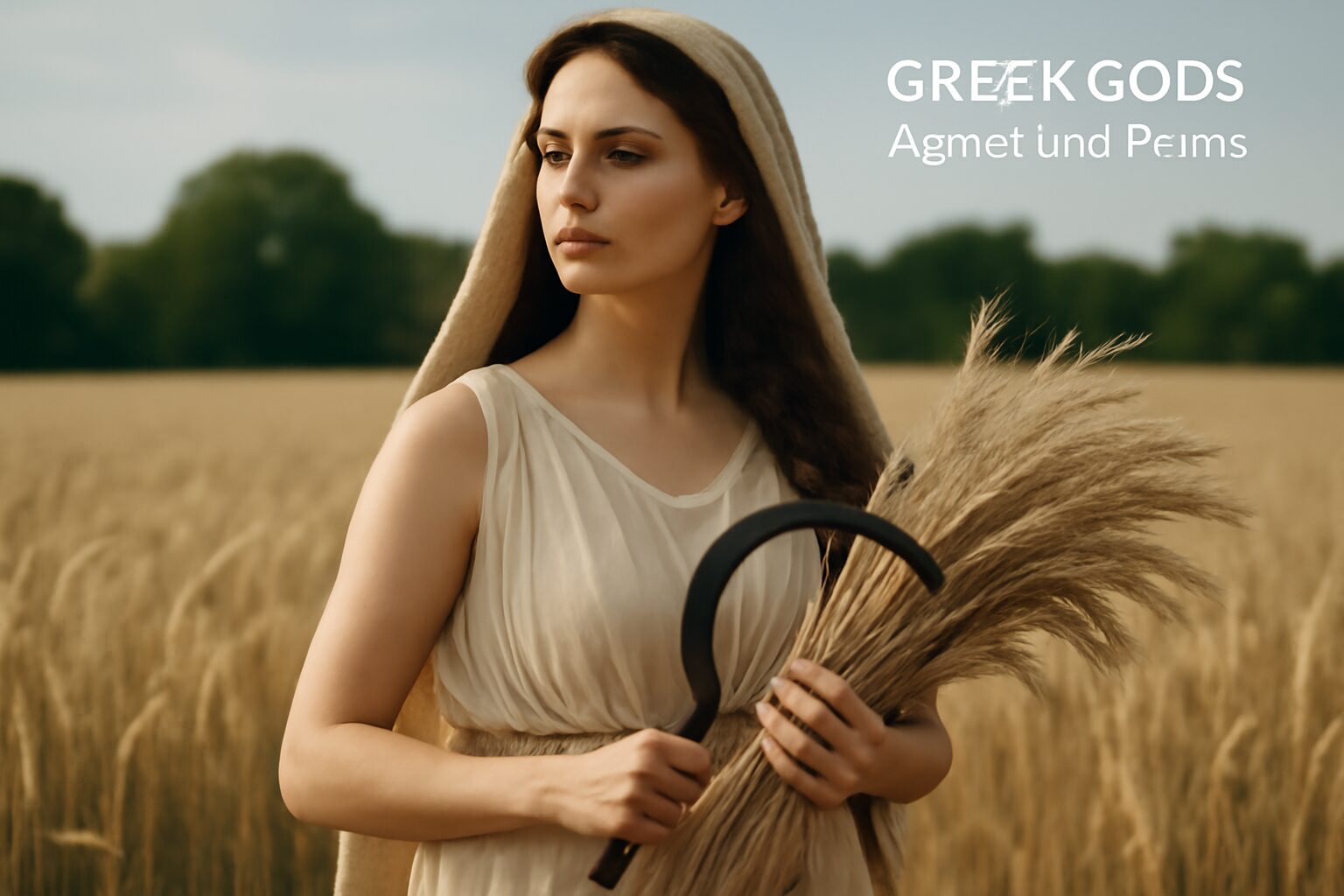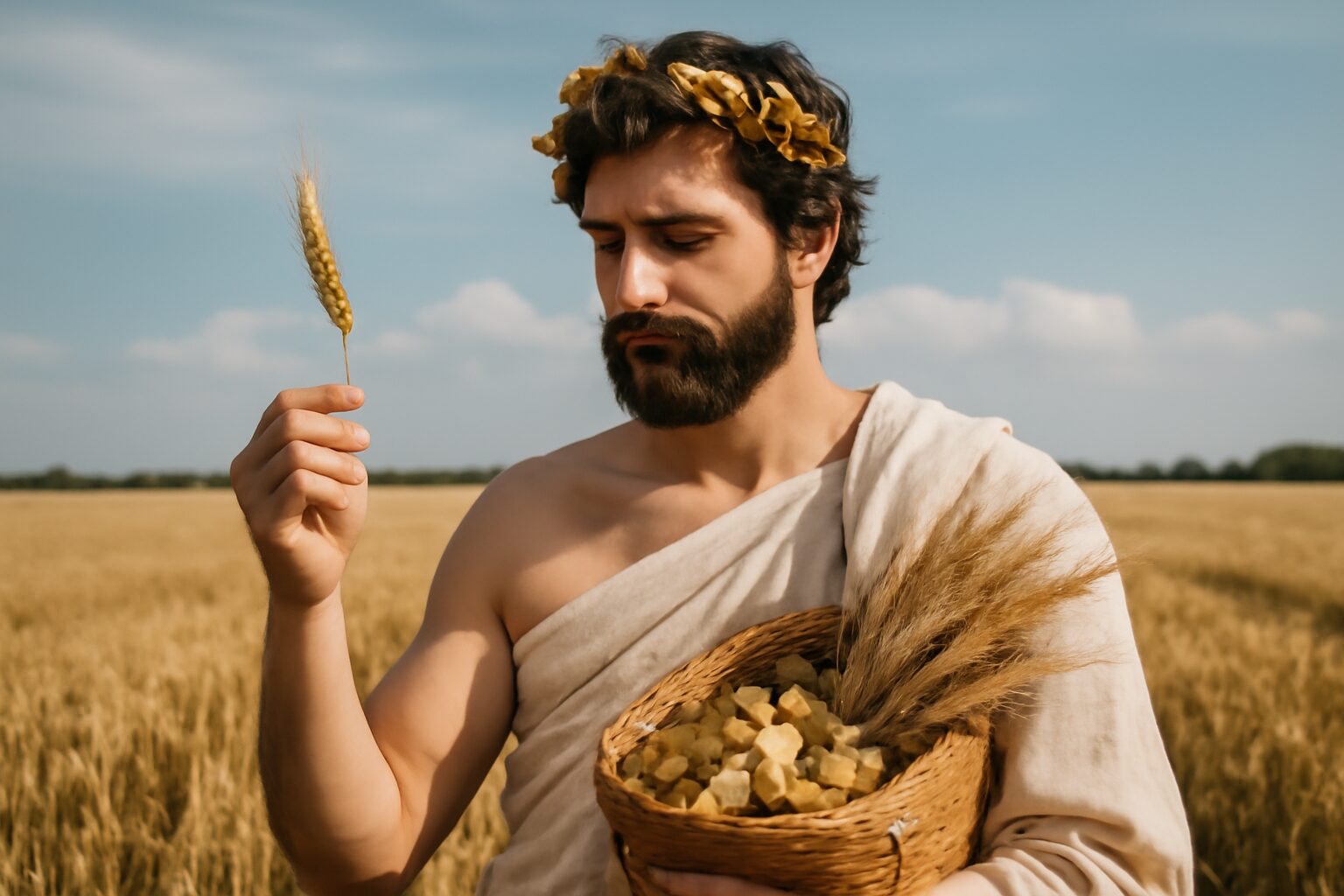Aphaea: The Enigmatic Goddess of Aegina
In the rich tapestry of Greek mythology, Aphaea stands as a mysterious yet fascinating deity, primarily worshiped on the island of Aegina. Often associated with fertility, agriculture, and hunting, she embodies the untamed spirit of nature. While less widely known than Olympian goddesses like Artemis or Demeter, Aphaea held significant local importance and was deeply revered by the people of Aegina.
Origins and Mythology
Aphaea's origins are shrouded in myth. Some scholars suggest she may have been a local Minoan or Cretan goddess later absorbed into Greek religion. According to legend, she was a nymph pursued by King Minos of Crete. To escape his advances, she threw herself into the sea near Aegina, where she was transformed into a goddess by the divine will of the gods. Another version links her to Britomartis, a Cretan goddess of hunting, hinting at possible syncretism between regional deities.
Powers and Domains
Aphaea was worshiped as a protector of wildlife, particularly deer, and a guardian of the natural world. Her connection to fertility made her a patron of agriculture, ensuring bountiful harvests for the islanders. Unlike Artemis, who was also a huntress, Aphaea's worship emphasized her nurturing aspects—her ability to sustain life through the land's abundance. Temples dedicated to her often featured rituals involving offerings of first fruits and grains.
The Sanctuary of Aphaea
The most famous site of her worship was the Temple of Aphaea on Aegina, a stunning Doric structure built in the 6th century BCE. The temple's pediments depicted scenes from the Trojan War, possibly linking Aphaea to Athena, another goddess associated with wisdom and warfare. Archaeological finds, including votive offerings, suggest her cult was active for centuries, blending indigenous traditions with broader Greek religious practices.
Relationships and Legacy
Though Aphaea did not feature prominently in pan-Hellenic myths, her influence persisted through local devotion. Some myths connect her to Zeus, suggesting she may have been one of his many divine consorts. Others associate her with the nymphs or the earth goddess Gaia. Over time, her worship faded as Greek religion evolved, but her temple remains a testament to her enduring significance on Aegina.
Today, Aphaea's legacy endures in art, archaeology, and the study of ancient Greek religion—a reminder of the diverse and complex nature of the gods who once shaped the lives of their worshippers.
Alternative Names for Aphaea
God Name: Aphaia (Greek)
An alternative spelling of Aphaea, used in some ancient Greek texts and inscriptions. It refers to the same goddess worshiped primarily in Aegina.
God Name: Britomartis (Roman)
In Roman mythology, Aphaea was sometimes identified with Britomartis, a Cretan goddess of hunting and nets. This syncretism occurred due to shared attributes of virginity and nature.
God Name: Diktynna (Greek)
Another name linked to Aphaea, particularly in Crete, where she was associated with hunting and fishing nets (diktya). This name emphasizes her role as a protector of fishermen and hunters.
Tales about Aphaea
Aphaea and Artemis: The Huntress's Sanctuary
On the island of Aegina, the goddess Aphaea was known as a guardian of fertility and the wild. One day, Artemis, the virgin huntress, sought a secluded grove where she and her nymphs could rest undisturbed. She wandered into Aphaea’s sacred woods, where the trees whispered of ancient magic.
Aphaea, sensing a divine presence, emerged from the foliage. Recognizing Artemis, she offered her protection and the grove as a sanctuary. In gratitude, Artemis blessed the land, ensuring its animals would always be plentiful for the hunt, and its springs would never run dry. To this day, the island is said to bear the mark of their pact—a harmony between cultivation and the wild hunt.
This sacred grove also drew the attention of Tyche, who blessed it with prosperity, and Euthenia, who ensured its abundance. Epimeliades, nymphs of apple trees, tended the grove's orchards, while Sophrosyne imbued the sanctuary with moderation and wisdom.
Aphaea and Britomartis: The Flight to Aegina
Long ago, the nymph Britomartis, a companion of Artemis, was fleeing the unwanted advances of King Minos of Crete. She leaped from a cliff into the sea to escape him, praying for deliverance. Aphaea, moved by her plight, cast a net of divine light to save her, carrying Britomartis safely to the shores of Aegina.
There, Aphaea welcomed her, and the two goddesses became protectors of the island. Britomartis, renamed Diktynna, was honored alongside Aphaea, and their shared legacy symbolized refuge and resilience. The people of Aegina built temples to both, celebrating the bond forged in a moment of desperation and divine compassion.
Their sanctuary was further guarded by Soter, who offered safety to supplicants, and Homonoia, who fostered unity among the islanders. Eidothea, a prophetic sea nymph, provided guidance to sailors seeking the island, while Eucleia ensured the temples were honored with good repute.
Frequently Asked Questions
Who is Aphaea in Greek mythology?
Aphaea is a minor Greek goddess associated with agriculture and fertility, often linked to the island of Aegina. She is sometimes considered a local version of the more well-known goddesses Demeter or Artemis, focusing on the growth of crops and the earth's bounty.
Why are agricultural deities like Aphaea important in Greek mythology?
Agricultural deities were vital in Greek mythology because ancient Greek society relied heavily on farming. Gods and goddesses like Aphaea symbolized the cycles of nature, fertility, and harvest, which were essential for survival. They were worshiped to ensure good crops and prosperity.
What can we learn from the worship of agricultural deities like Aphaea?
The worship of agricultural deities like Aphaea teaches us about the deep connection ancient Greeks had with nature. It highlights their dependence on the land and their efforts to understand and influence natural processes through religion and ritual.
How does the concept of Aphaea apply to modern agriculture?
While modern agriculture relies on science and technology, the reverence for deities like Aphaea reminds us of the importance of respecting and sustaining the earth. It encourages eco-friendly farming practices and an appreciation for the natural cycles that still underpin food production today.
Are there any festivals or rituals associated with Aphaea?
Yes, Aphaea was honored with local festivals and rituals on the island of Aegina, often involving offerings and prayers for fertile land and abundant harvests. These ceremonies reflected the community's gratitude and hope for agricultural success.

